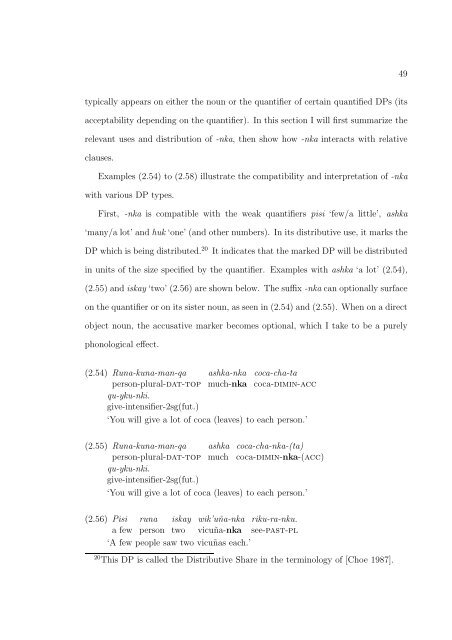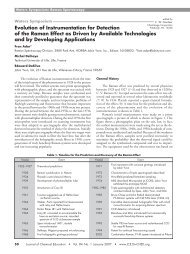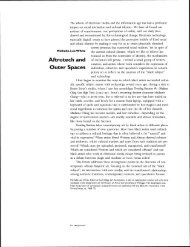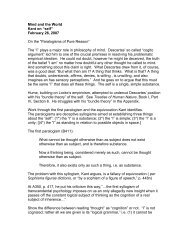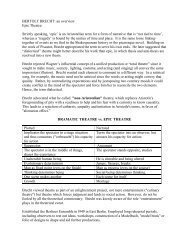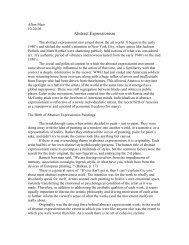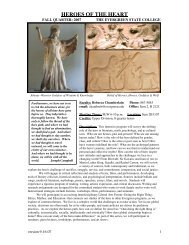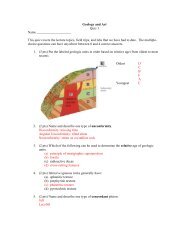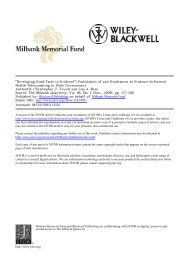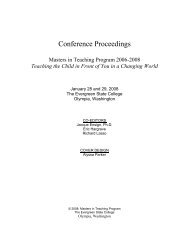the syntax and semantics of relativization and quantification
the syntax and semantics of relativization and quantification
the syntax and semantics of relativization and quantification
Create successful ePaper yourself
Turn your PDF publications into a flip-book with our unique Google optimized e-Paper software.
49<br />
typically appears on ei<strong>the</strong>r <strong>the</strong> noun or <strong>the</strong> quantifier <strong>of</strong> certain quantified DPs (its<br />
acceptability depending on <strong>the</strong> quantifier). In this section I will first summarize <strong>the</strong><br />
relevant uses <strong>and</strong> distribution <strong>of</strong> -nka, <strong>the</strong>n show how -nka interacts with relative<br />
clauses.<br />
Examples (2.54) to (2.58) illustrate <strong>the</strong> compatibility <strong>and</strong> interpretation <strong>of</strong> -nka<br />
with various DP types.<br />
First, -nka is compatible with <strong>the</strong> weak quantifiers pisi ‘few/a little’, ashka<br />
‘many/a lot’ <strong>and</strong> huk ‘one’ (<strong>and</strong> o<strong>the</strong>r numbers). In its distributive use, it marks <strong>the</strong><br />
DP which is being distributed. 20 It indicates that <strong>the</strong> marked DP will be distributed<br />
in units <strong>of</strong> <strong>the</strong> size specified by <strong>the</strong> quantifier. Examples with ashka ‘a lot’ (2.54),<br />
(2.55) <strong>and</strong> iskay ‘two’ (2.56) are shown below. The suffix -nka can optionally surface<br />
on <strong>the</strong> quantifier or on its sister noun, as seen in (2.54) <strong>and</strong> (2.55). When on a direct<br />
object noun, <strong>the</strong> accusative marker becomes optional, which I take to be a purely<br />
phonological effect.<br />
(2.54) Runa-kuna-man-qa<br />
person-plural-dat-top<br />
qu-yku-nki.<br />
give-intensifier-2sg(fut.)<br />
ashka-nka<br />
much-nka<br />
coca-cha-ta<br />
coca-dimin-acc<br />
‘You will give a lot <strong>of</strong> coca (leaves) to each person.’<br />
(2.55) Runa-kuna-man-qa<br />
person-plural-dat-top<br />
qu-yku-nki.<br />
give-intensifier-2sg(fut.)<br />
ashka<br />
much<br />
coca-cha-nka-(ta)<br />
coca-dimin-nka-(acc)<br />
‘You will give a lot <strong>of</strong> coca (leaves) to each person.’<br />
(2.56) Pisi<br />
a few<br />
runa<br />
person<br />
iskay<br />
two<br />
wik’uña-nka<br />
vicuña-nka<br />
riku-ra-nku.<br />
see-past-pl<br />
‘A few people saw two vicuñas each.’<br />
20 This DP is called <strong>the</strong> Distributive Share in <strong>the</strong> terminology <strong>of</strong> [Choe 1987].


